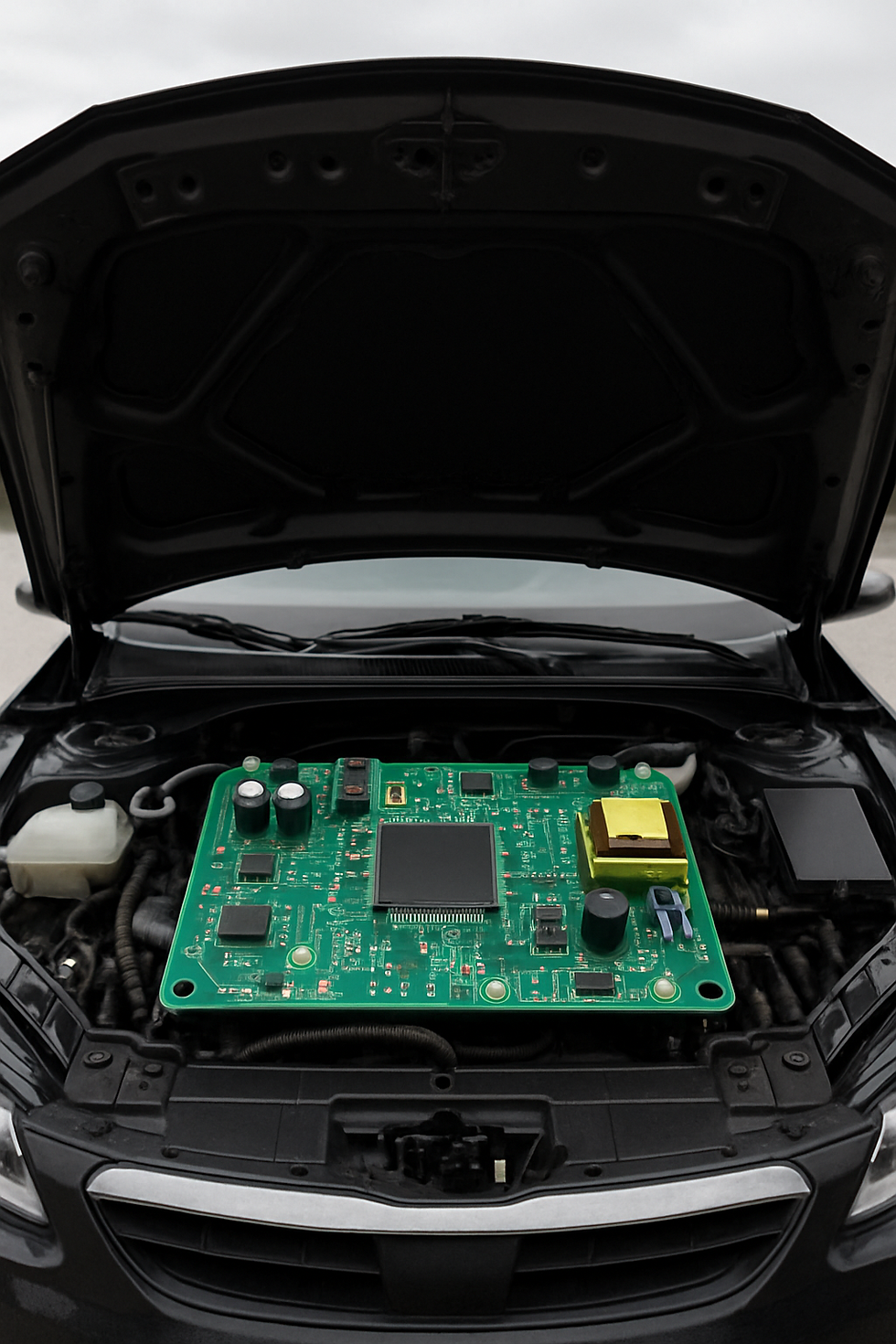Quality Standards That Matter in Automotive PCB Assembly
- Mefron Technologies
- Aug 8, 2025
- 2 min read
Updated: Aug 22, 2025

The automotive industry demands precision, durability, and uncompromising quality from every component. Printed Circuit Boards (PCBs) form the backbone of modern vehicles, powering everything from advanced driver-assistance systems (ADAS) to infotainment units and battery management systems in electric vehicles. Any fault in assembly can lead to performance issues, safety risks, or costly recalls. That’s why quality standards play a critical role in automotive PCB assembly.
For OEMs and Tier 1 suppliers, partnering with the Best Automotive PCB Assembly Service is not just about competitive pricing — it’s about meeting stringent international benchmarks that ensure reliability under extreme operating conditions.
Key Quality Standards in Automotive PCB Assembly
1. IATF 16949 Certification
This globally recognized automotive quality management standard ensures consistent manufacturing processes, defect prevention, and continuous improvement. Any Turnkey PCB Assembly provider catering to the automotive sector must comply with IATF 16949 to guarantee process discipline and customer satisfaction.
2. IPC-A-610 Class 3 Standards
For mission-critical electronics like automotive PCBs, IPC-A-610 Class 3 standards define the highest acceptance criteria for soldering, component placement, and cleanliness. This ensures that assemblies can perform reliably in high-vibration, high-temperature environments.
3. ISO 9001:2015 Quality Management System
While IATF 16949 is automotive-specific, ISO 9001:2015 sets the foundation for robust quality management. It governs documentation, risk assessment, and process control — all essential for delivering consistent PCB quality.
4. Automotive-Grade Component Standards (AEC-Q)
PCBs in vehicles are exposed to temperature extremes, moisture, and mechanical stress. Components adhering to AEC-Q100/200 ensure the assembly can withstand such conditions without performance degradation.
5. Functional Testing and Validation
Beyond visual inspection, automotive PCB assemblies undergo in-circuit testing (ICT), functional testing, and environmental stress screening (ESS). These steps verify that the board will operate reliably in real-world conditions.
The Role of Turnkey PCB Assembly in Quality Compliance
Opting for Turnkey PCB Assembly streamlines quality assurance by consolidating procurement, assembly, and testing under one roof. This reduces handoffs, minimizes risks of communication gaps, and ensures that every stage of production meets the required automotive standards. A capable turnkey partner also maintains strong supplier relationships to source only verified automotive-grade components.
Mefron Technologies: Delivering Quality Without Compromise
At Mefron Technologies, our automotive PCB assembly operations are built on certified processes, skilled engineering teams, and advanced testing capabilities. From single prototypes to large-scale production, we ensure that every project meets or exceeds IATF 16949, IPC-A-610 Class 3, and other industry benchmarks.
Our commitment to excellence has made us a trusted choice for OEMs looking for the Best Automotive PCB Assembly Service that delivers both performance and reliability.
Final Thoughts
In the fast-evolving automotive industry, quality standards are not optional — they are the foundation of safety, performance, and customer trust. Partnering with a capable Turnkey PCB Assembly provider that understands and adheres to these standards ensures that your automotive electronics meet the rigorous demands of the road.
Further Reading
If you find this blog interesting and want to read more such blog like this, then I would suggest please visit the Mefron blog page



Comments